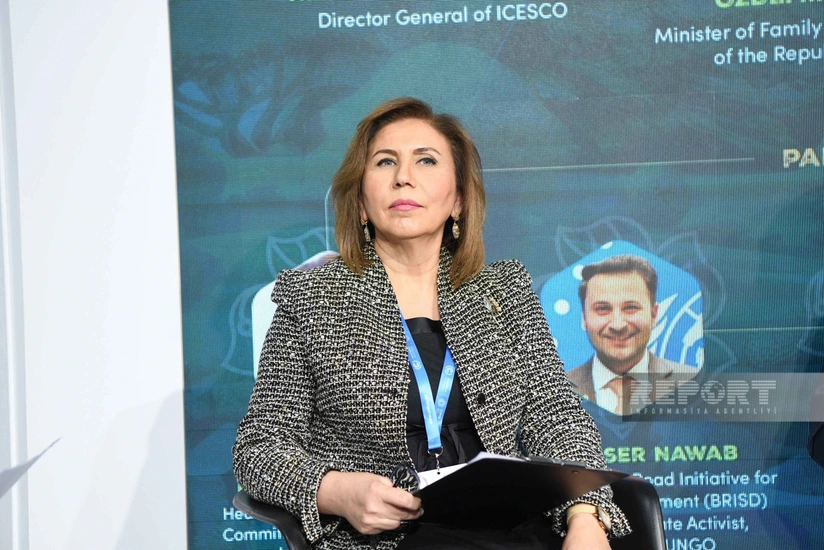Bahar Muradova: Over 1B youth live in climate disaster-prone areas
- 18 November, 2024
- 14:43

The global recognition of the close link between human rights and the environment underscores that this problem is not only ecological but also a social, economic, and security issue, said Bahar Muradova, Chairperson of the State Committee of Azerbaijan for Family, Women and Children Affairs, Report informs.
Speaking at the event titled "Youth Leadership in Climate Resilience and Peacebuilding," held as a part of COP29, Muradova emphasized that millions of people, including children and youth, experience the impact of climate change and its conflict-related effects in their daily lives across various parts of the world.
"As the most active citizens, young people contribute to peacebuilding by offering their own solutions. By participating in climate resilience and environmental initiatives, they promote the principles of sustainable development. Therefore, it is crucial to expand youth participation in the fight against climate change, protect their rights, and consider their specific needs in existing policies and programs," the chairperson stated.
She noted that according to recent global data, over 1 billion young people live in areas vulnerable to climate-related disasters: “Promoting education and awareness among youth not only emphasizes their adaptation but also their active participation in processes.”
Muradova highlighted that along with the ecological problems, climate change and resource scarcity create tension between people and consequently deepen conflicts.
“The UN Peacebuilding Support Office notes that in many conflict-affected countries, youth constitute more than half of the population. In this regard, their involvement in peacebuilding efforts can help prevent violence and promote sustainable development,” she stated.
The committee chair also stressed that young people should actively use social media to raise awareness about climate change and peace and stimulate discussions in these areas. She highlighted that digital platforms provide youth with the opportunity to reach a wider audience and share their ideas.
"Youth leadership should not be limited to individual initiatives. Listening to their voices, accepting their ideas, and involving them in decision-making processes means preparing a more sustainable and just future," Muradova added.
She also pointed out that in Azerbaijan, large-scale measures are being implemented to solve ecological issues. The state of the environment is an essential component of the country's long-term development strategy. Several important state programs, socio-economic development strategies, and extensive action plans are being realized for the efficient use of resources.
